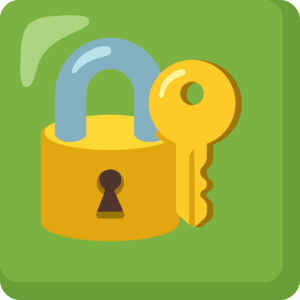Ever wonder what actually happens to your data when you browse a website? You’re not alone. These days, websites collect all sorts of information—everything from your browser type and IP address to your name and even your credit card number. Why? Mostly to personalise your experience, serve up targeted ads, and keep things running smoothly behind the scenes.
If you run a business or manage IT, understanding how data collection works is a must. So let’s break it down—no tech jargon, just real talk.
What Is Data Collection On Websites?
Let’s be honest—every website’s collecting something. Whether it’s cookies tracking your clicks or forms capturing your contact info, it’s all part of how websites learn who you are and what you’re into.
Here’s the deal:
- First-party data is what your own website collects—think previous orders or browsing behaviour.
- Third-party data comes from elsewhere—like when Facebook or Google slap their tracking code on your site to follow what users do across the web.
It’s not all evil genius stuff—most of this is used to improve user experience, like showing you relevant content or speeding up checkouts. But yeah, it does raise some eyebrows when it comes to privacy.
As your friendly IT Support crew here in Brisbane and Mackay, we always tell clients—transparency is everything. If users don’t know what’s being collected and why, they won’t trust you. And in business, trust is everything.
How Does Data Sharing Work?
Good question. Data sharing means making information available to other systems or organisations—on purpose, hopefully. Whether it’s syncing systems via APIs, sharing files through the cloud, or plugging in third-party tools, it’s all about connecting dots. But every connection opens up risks if not done right.
Real talk:
- APIs are great for live data exchange, but you better know who’s on the other end.
- Cloud storage is handy, but who’s got access? And is it locked down?
If you’re using Managed Services or working with a Managed IT provider (like us!), you need to be sure your data sharing practices are bulletproof. That means encrypted data, access controls, and most importantly—compliance with privacy laws like GDPR and CCPA. You don’t want regulators knocking.
How Should Websites Manage User Data?
Managing user data isn’t just a legal obligation—it’s about being a good digital citizen. If you’re running a business in Brisbane or Mackay, this is where your IT strategy really matters.
Here’s how we help our clients get it right:
Best Practices for Data Management
- Transparency & Consent: Spell it out. What’s being collected? Why? Let people opt in (or out).
- Data Minimisation: Only grab what you need. Less data = less risk.
- Secure Data Storage: Encrypt everything—at rest, in transit, and even in your backups.
- User Control: Give people access to their own data. Let them download it, edit it, or even delete it if they want to bail.
This isn’t just good practice—it’s the backbone of solid IT Support and Managed IT strategies we build for clients every day.
Why Is Data Privacy Important?
Data privacy isn’t just about ticking boxes—it’s about protecting your customers, your brand, and your peace of mind. These days, people expect you to take their info seriously. Slip up, and you’re not just looking at a fine—you’re risking your reputation.
As your Managed Services partner, we help you:
- Set up the right processes
- Train your team (so they don’t accidentally email spreadsheets to the wrong address 😬)
- Use encryption and access management that actually works
Ensuring Compliance
No one loves audits, but regular reviews of your privacy policies and security systems? Non-negotiable. If you’re in a regulated industry or just want to sleep better at night, it’s worth the effort.
Building Trust Through Transparency
Keep it simple. Let users know what’s going on with their data and give them easy ways to control it. Trust us—being upfront builds loyalty.
How Can Users Protect Their Data?
Let’s flip it for a second—because protecting data isn’t just your job. Users have a role too. We always encourage businesses to educate their teams and clients with simple, no-BS advice.
Here’s what we tell folks:
- Use privacy-focused browsers or extensions to block trackers
- Check privacy settings on social platforms (you’d be surprised what’s turned on by default)
- Don’t just click ‘accept all cookies’ out of habit
Tools For Data Protection
- VPNs to keep your online activity private
- Password managers to stop reusing “Password123”
- Regular software updates (because that patch fixes more than just bugs)
Educating Yourself
Knowledge is power. The more you know about how your data’s used, the better decisions you can make online—and in business.
Take Action to Protect Your Data
Look, the digital world isn’t going to get less complex anytime soon. But that doesn’t mean you have to navigate it alone. Whether you’re in Mackay, Brisbane, or somewhere in between—we’re here to help.
We provide Managed IT and IT Support services that make data privacy simple, scalable, and actually work in the real world. From helping you draft privacy policies to locking down your systems, we’ve got your back.
Let’s chat. Whether you’re a small business, a growing enterprise, or just someone who wants peace of mind—we’d love to help you take control of your data.
—




